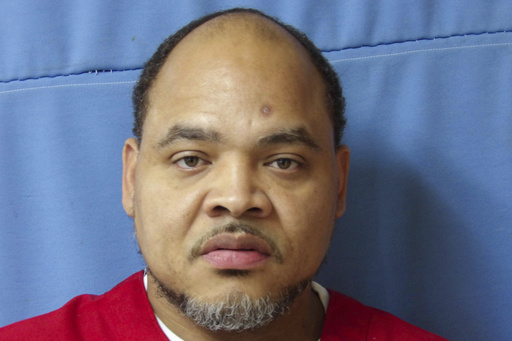The U.S. Supreme Court has opted not to review the appeal of a death row inmate from Mississippi who was found guilty of murdering a high school student by running her over. However, the inmate is pursuing a different appeal in a federal district court.
Leslie “Bo” Galloway III, currently 41 years old, was convicted in 2010 in Harrison County. Prosecutors alleged that he killed 17-year-old Shakeylia Anderson from Gulfport and disposed of her body in a wooded area near a state highway.
A witness reported seeing Anderson, a senior from Harrison Central High School, getting into Galloway’s vehicle on December 5, 2008. Her body was discovered the following day by hunters. According to prosecutors, Anderson had been raped, suffered severe burns, and was run over by a car.
Galloway’s legal team contends that he did not receive competent representation during his trial, which led to jurors being unaware of his troubled background. Claudia Van Wyk, a staff attorney with the ACLU’s capital punishment project, indicated that this information might have influenced jurors to impose a life sentence instead of death by lethal injection.
Van Wyk criticized the Mississippi Supreme Court for justifying the trial attorneys’ lack of investigation as part of a misguided strategy to “humanize” Galloway. She expressed disappointment in the Supreme Court’s refusal to rectify what she sees as a significant misinterpretation of federal legal standards that require adequate investigation prior to any strategic decisions.
In death penalty cases, multiple appeals are often standard procedure, and Galloway’s most recent one was submitted in July. U.S. District Judge Carlton Reeves has granted the legal team until July of next year to prepare their response.
This ongoing appeal presents several issues, including claims that Galloway, being Black, was tried and condemned by an all-white jury. His current attorneys allege that trial lawyers failed to contest the prosecutors’ practice of disproportionately eliminating Black jurors compared to white jurors.
When the Supreme Court declined to take up Galloway’s appeal, no reasons were provided. This marks the second time the high court has bypassed his case, having done so previously in 2014.
Back in 2013, Galloway’s conviction and sentencing were affirmed by the Mississippi Supreme Court. In his state court argument, Galloway claimed he would not have faced the death penalty had it not been for the testimony of a forensic pathologist regarding Anderson’s sexual assault.
Defense attorneys submitted evidence from forensic pathologists from other states who asserted that the trial pathologist’s opinions lacked the backing of scientific principles. However, the Mississippi Supreme Court ruled in 2013 that the pathologist’s testimony remained within the bounds of his expertise. Galloway’s most recent legal filing asserts that the forensic testimony presented during his trial was based on “junk science” and that his trial lawyers inadequately challenged it.



